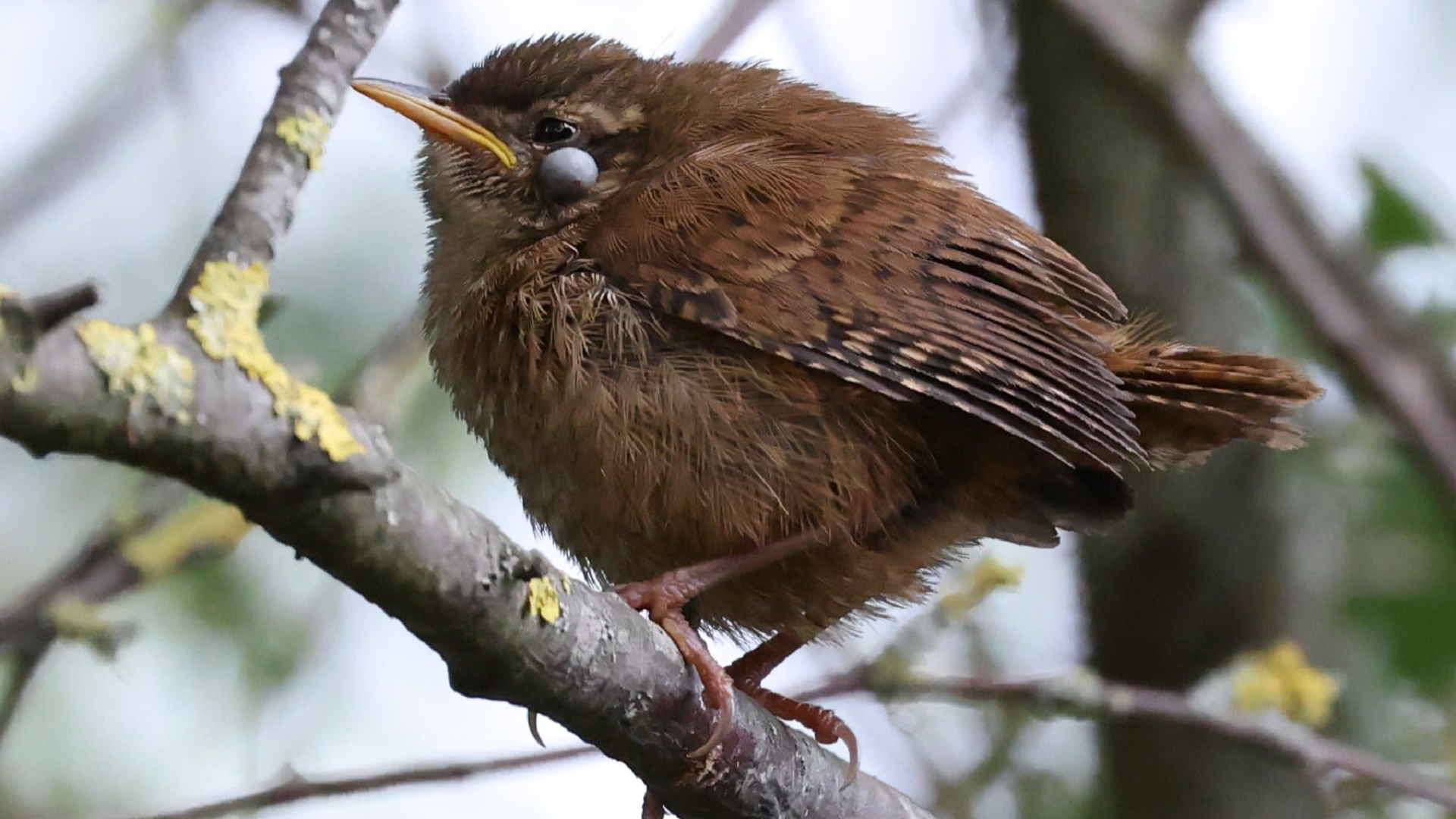Mites are eight-legged arthropods belonging to a group known as arachnids which also contain spiders, harvestmen and ticks. Most are less than 1mm long and are easily overlooked due to their tiny size. They live in a range of habitats, many live in soil as decomposers, some live in water and others on plants creating galls. Some live on animals as predators or parasites. Mites develop in four stages: egg, larva, nymph and adult.
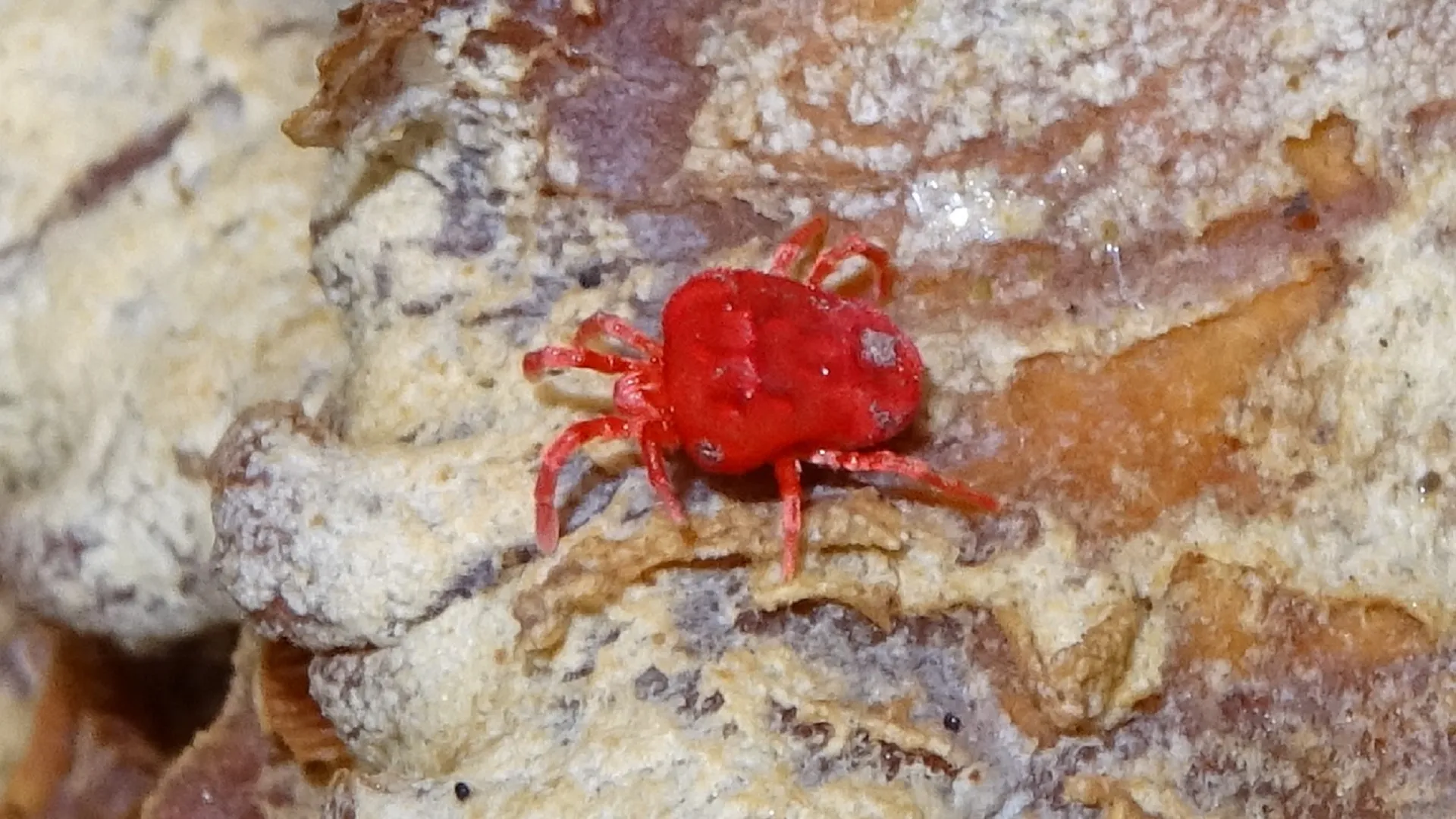
TQ4793 07/04/2018 ©Raymond Small
Red Velvet Mites are small brightly coloured arachnids. Adults (typically 4mm long) inhabit plant litter. The adults are predators whereas the early instars are usually parasites on insects.
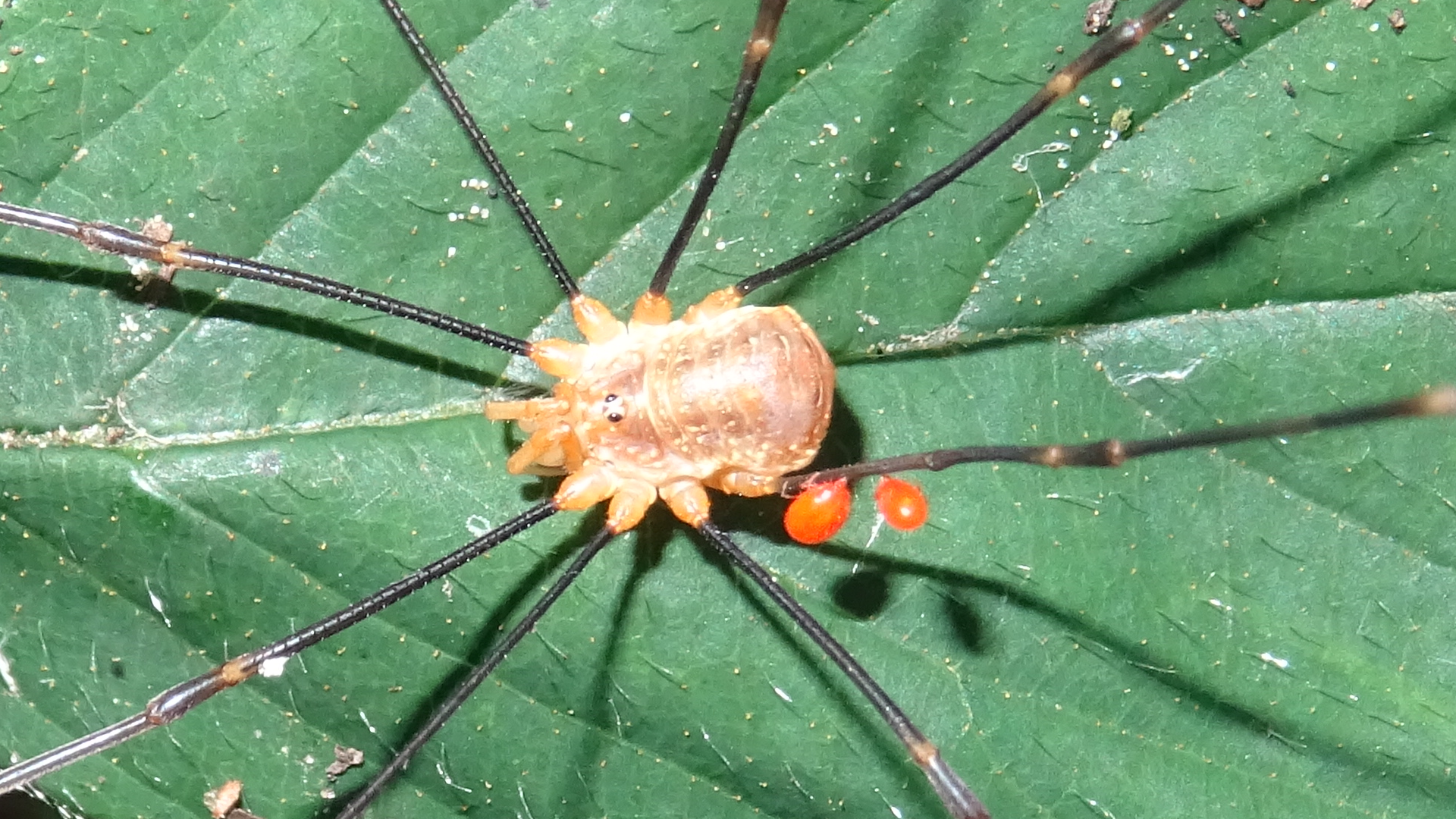
TQ4793 01/10/2021 ©Raymond Small
Mite larvae belonging to the genus Leptus are oval six-legged parasites that live on the surface of a host's body - in this case the legs of a harvestman. They feed by piercing the host's skin to draw fluids using a device like a drinking straw. After feeding the larvae drop off to pupate and turn into nymphs before reaching the adult stage. Hosts usually survive however their lives may be shortened. Nymphs and adults have eight legs.
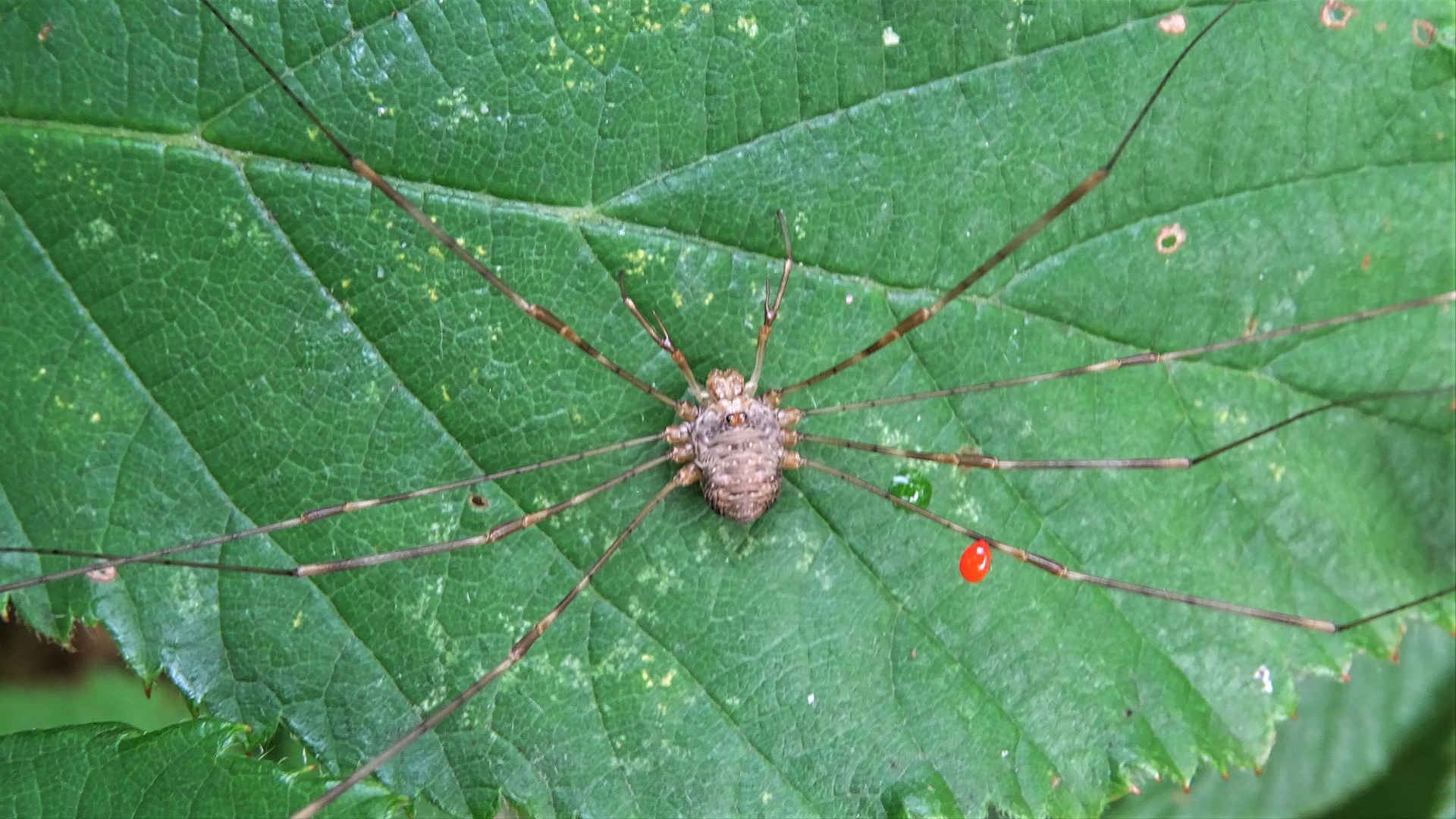
TQ4794 14/08/2023 ©Raymond Small
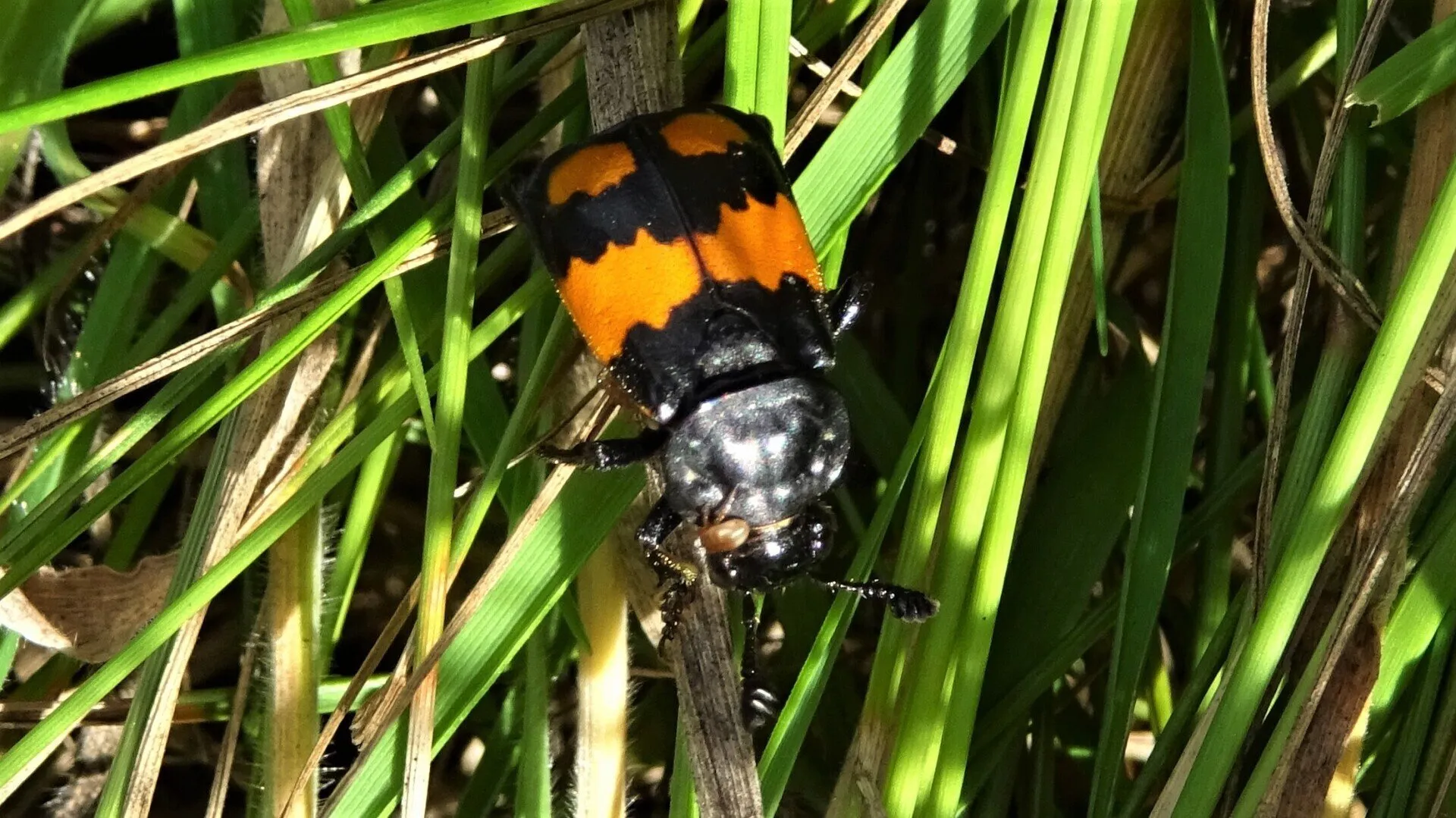
TQ4793 30/08/2018 ©Raymond Small
Phoretic Mites use a host purely as a means of transportation. This can be beneficial for both host and mite. The Sexton Beetle seeks carrion to bury as a food store for its young. The mites prey on maggots and other competition attracted to the same food source. This leaves the carrion untouched for the beetle's larvae to feed upon. When the new beetles emerge they carry the mites away to another carcass and the cycle repeats. In this picture you will see a mite hanging onto the beetle's neck.
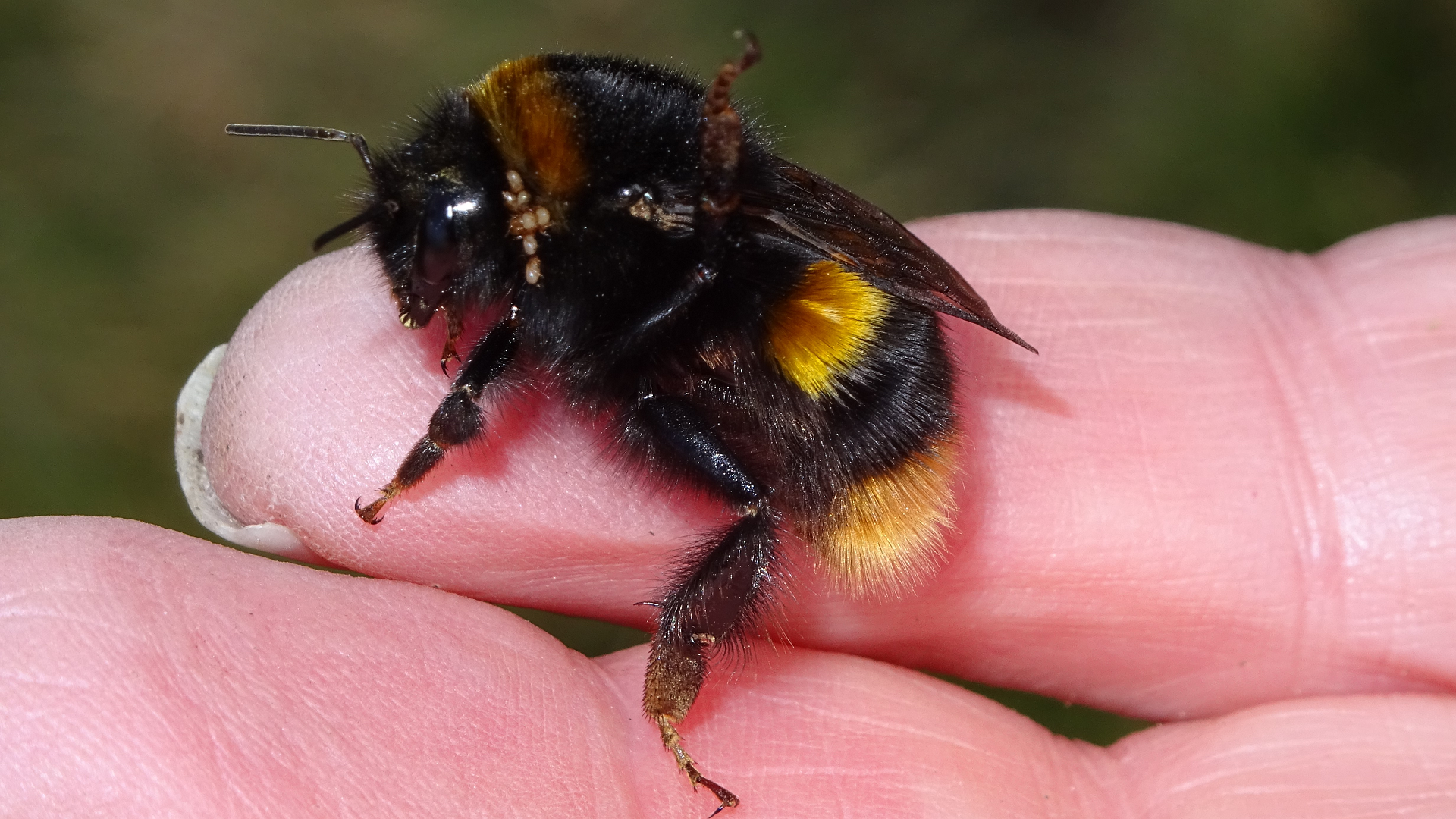
TQ4792 20/03/2018 ©Raymond Small
Mites often hitch lifts on Bumblebees as a means of transportation from flower to flower and don't usually cause any harm. Occasionally they can become a problem for their host if too many attach at a time. One particular mite, Parasitellus fucorum, is advantageous to bumblebee nest development. They help keep the nest clean by consuming debris, pollen and other small insects, but do not feed on the bumblebees or their larvae. Parasitic mite,
Locustacarus buchneri, lives in the respiratory air sacs of queen bumblebees. It lays up to 50 eggs in the queen's body where the larvae develop. It has not been established if this harms the queen, but in general a parasite needs the continued survival of the host for their own reproduction and survival.
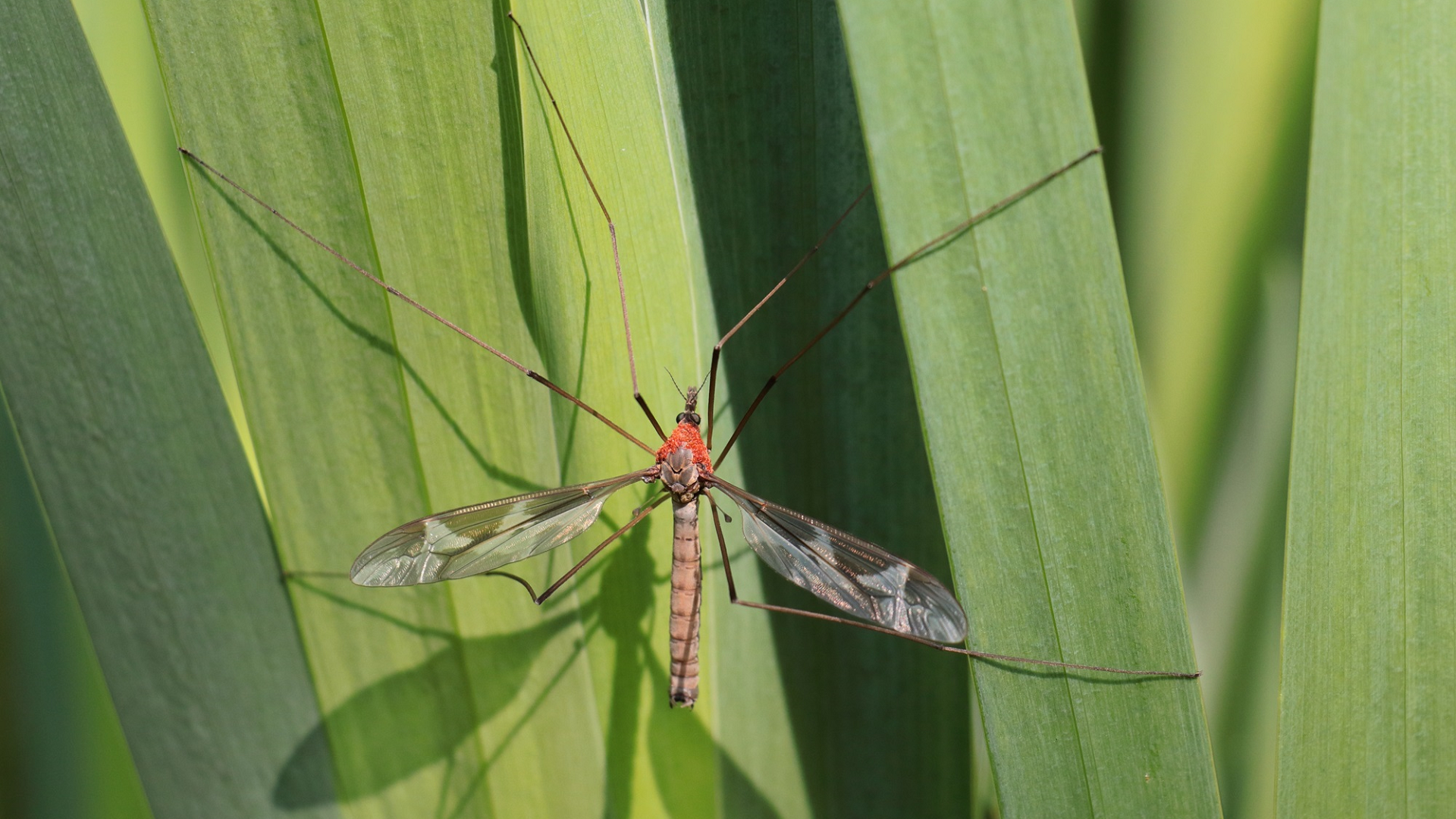
TQ4793 10/05/2024 © Mike Rumble
Some mites have a symbiotic relationship with craneflies that allows them to hitch rides, others are parasitic and feed on the crane-fly's body fluid.
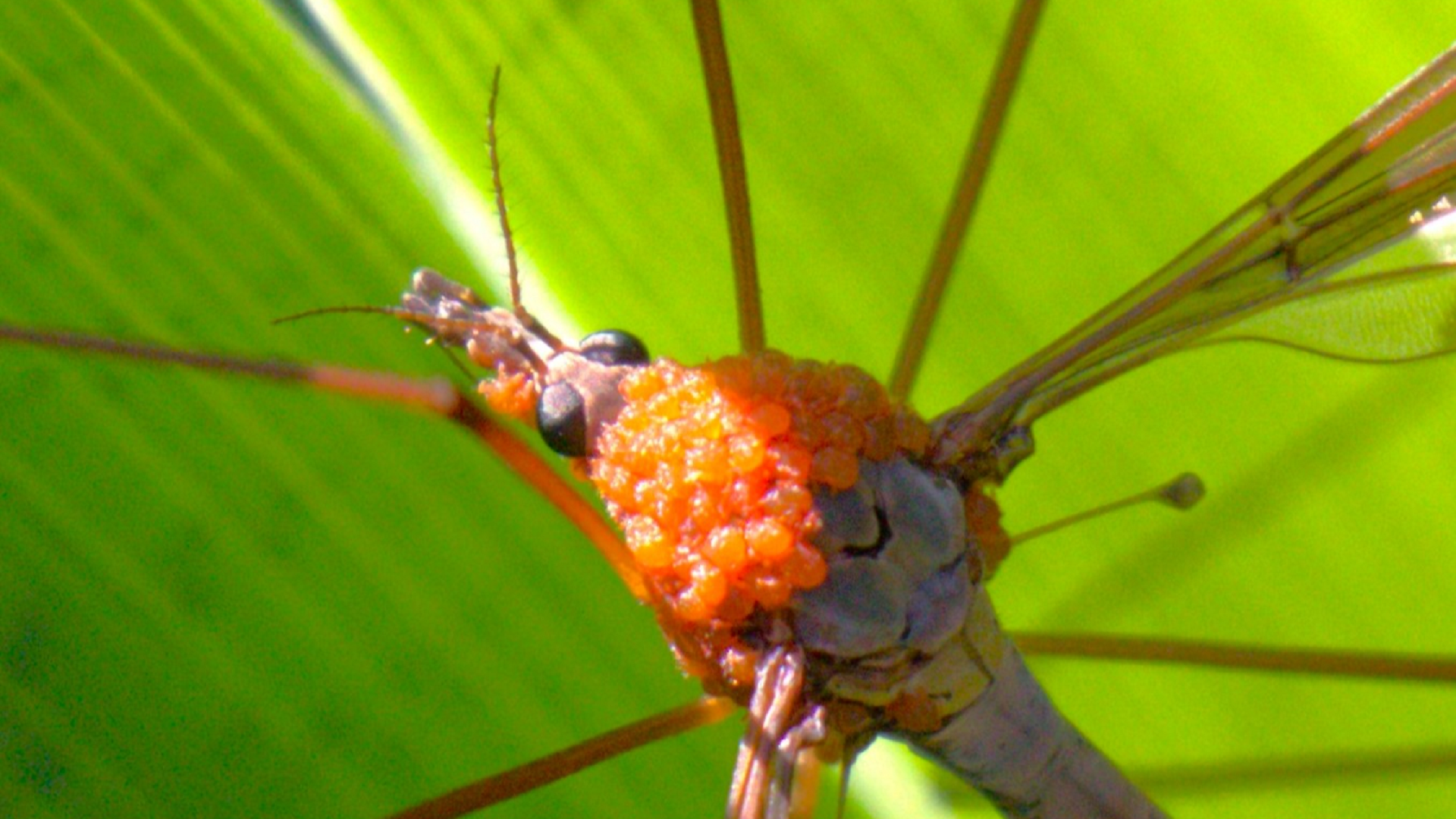
TQ4793 10/05/2024 © Mike Rumble
#
Ticks are small, blood-sucking arachnids that attach to mammals, birds, and reptiles to feed on the blood . They can transmit diseases, such as Lyme disease through their bites. They inhabit grassland and wooded areas and can be active year-round being most common in spring and autumn.
TQ4792 03/08/2025 ©Michael Trump
Wrens spend a lot of time on the ground which gives ticks an opportunity to attach themselves. A bird's head, neck and face are especially vulnerable.
Ixodes brunneus is a specific species known to feed on passerine birds, including wrens. A dust bath, the process of rolling about in loose dirt or dust, helps birds rid their bodies of parasites. Ticks seeking a blood meal can transmit diseases and sometimes cause paralysis, or blindness if located near the bird's eyes.
Please note that due to the difficulty in identifying the different species this webpage is only able to provide a general overview of mites and ticks.
#
© hainaultforest.net. All rights reserved.


